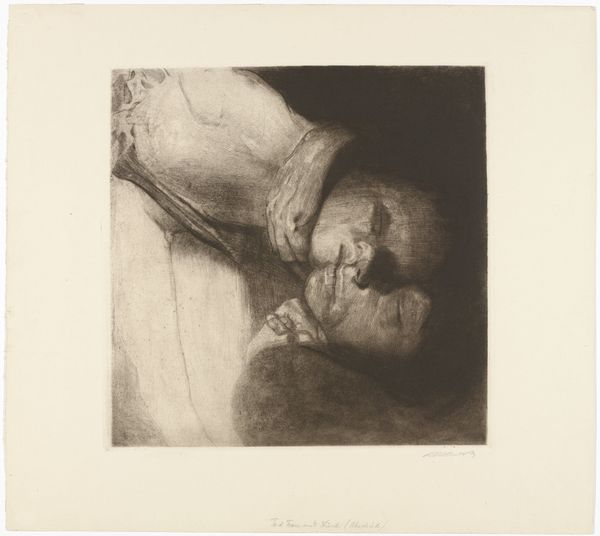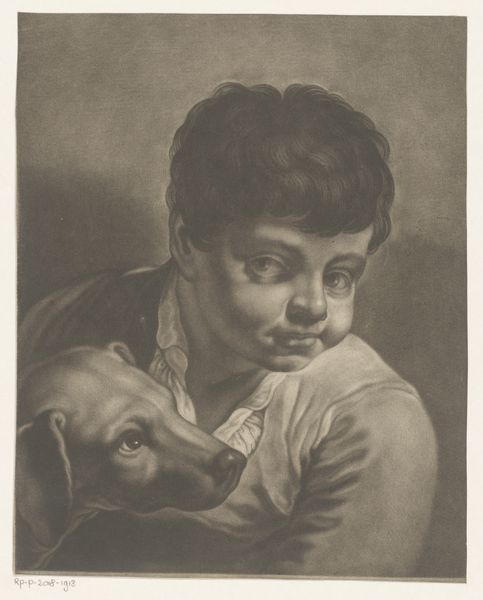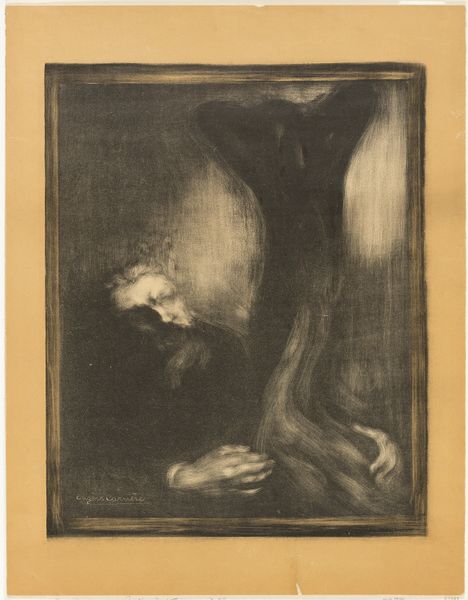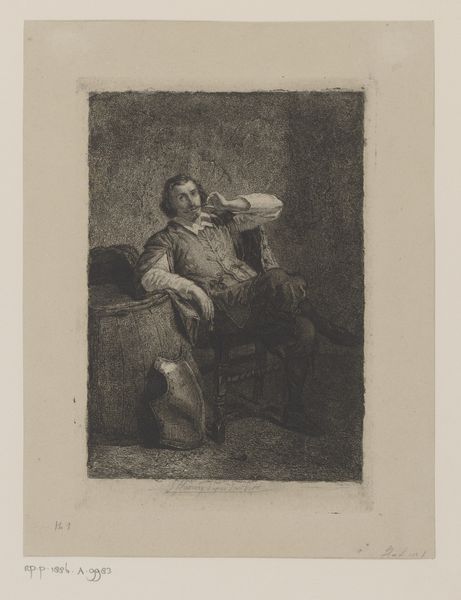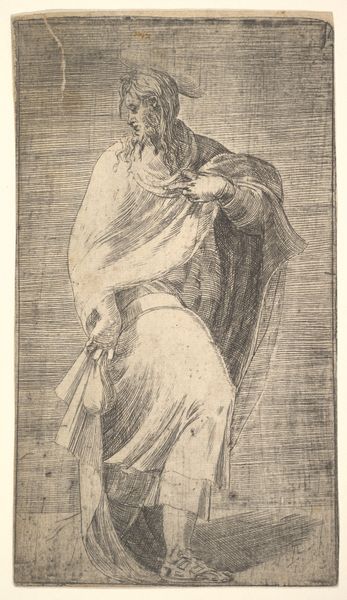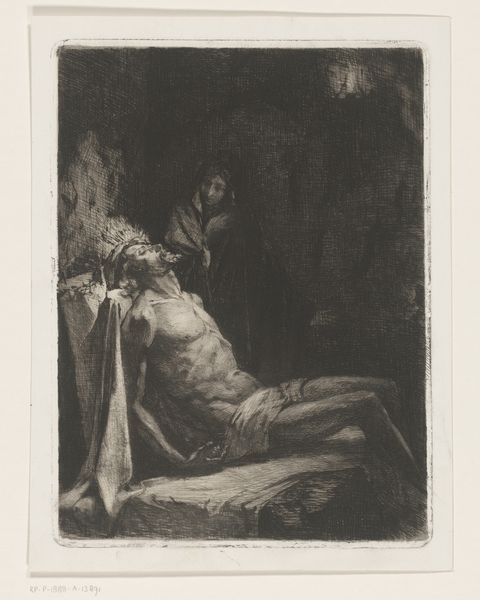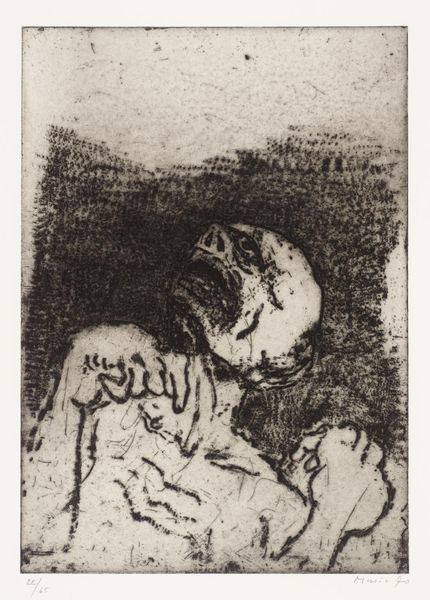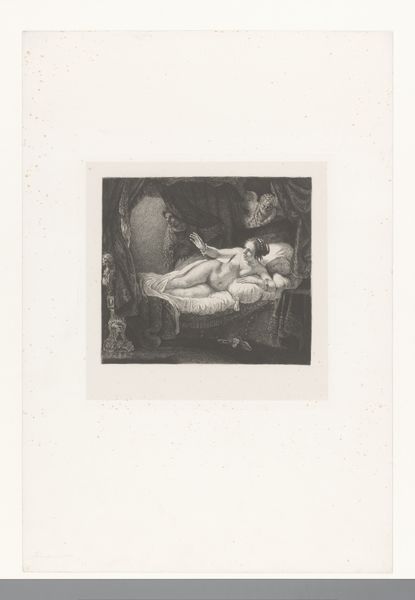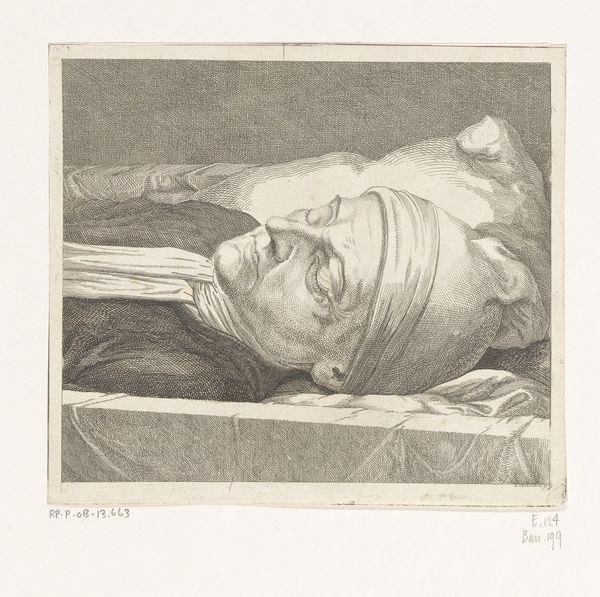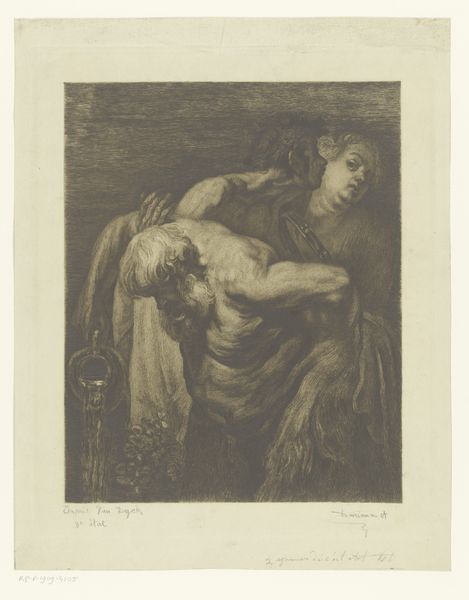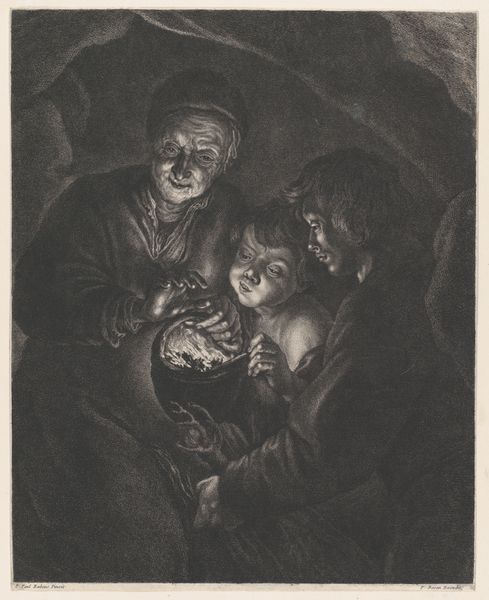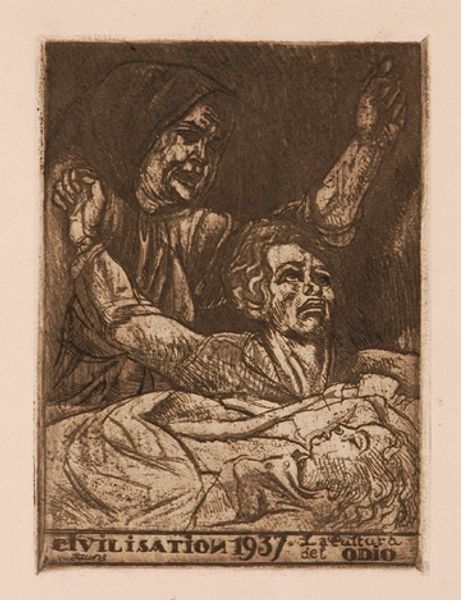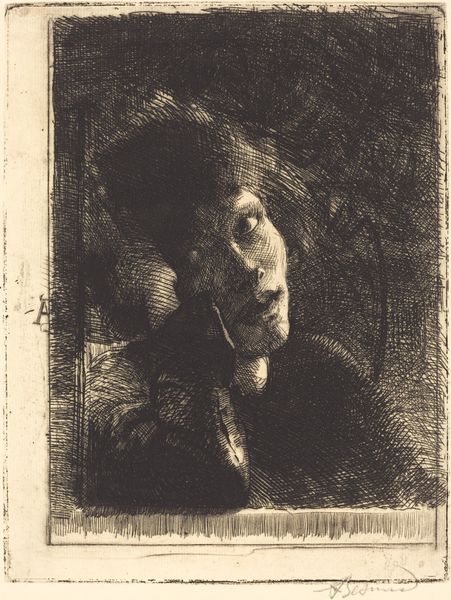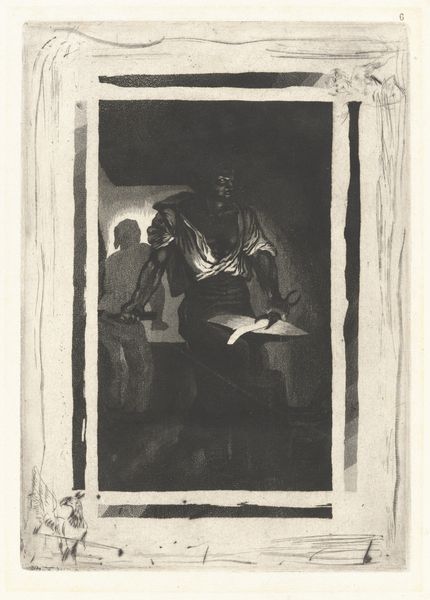
drawing, print, etching
#
portrait
#
drawing
#
self-portrait
#
baroque
# print
#
etching
#
charcoal drawing
#
pencil drawing
Dimensions: Sheet: 14 9/16 × 11 1/4 in. (37 × 28.5 cm)
Copyright: Public Domain
Curator: Looking at this image, I'm immediately drawn in by the almost theatrical drama of light and shadow. It's the sort of thing that just begs you to slow down. Editor: Indeed, Bernard Vaillant’s "Socrates Looking in a Mirror," created between 1645 and 1698, achieves just that through masterful etching. A Baroque print currently housed at the Metropolitan Museum. But tell me, what resonates so strongly for you? Curator: Well, beyond the technique—the man himself! He seems lost in contemplation, peering at his own reflection with a profound sense of... what is it? Almost reluctant honesty? He is seeking, it's as though the mirror shows him not merely what he *is*, but perhaps, more unsettlingly, what he might become. Editor: I see it too. And for me, this etching becomes an intriguing commentary on the commodification of even philosophical thought. The printmaking process allowed for mass production of images and ideas like never before. Here, Socrates and his pursuit of self-knowledge are turned into an object for wider consumption. Curator: Hmm, fascinating take. I hadn't considered that angle! I tend to be drawn more towards the almost tortured relationship between the artist and his subject, himself of course. Does that quest ever truly conclude? Do we ever see ourselves accurately? Editor: Exactly, etching requires meticulous labor and material inputs like copper plates and acids, the artist’s time is literally etched onto a surface that could be endlessly reproduced. In Baroque society, prints also functioned as models for paintings. Etchings weren't viewed so separately from other industries. Curator: That adds such depth! This process makes me think—he is not only looking but creating, constantly, consciously making himself—both as a subject *and* object— in that mirror’s reflective glow. Perhaps Socrates wouldn't hate NFTs if he were alive. Editor: Haha! Maybe. But from a materialist perspective, the layers of artistic and commercial intention transform something supposedly sacred—self-reflection—into another resource to be mined and consumed, right? Curator: Right, the print as an art form itself facilitates democratization *and* commodification. It’s a delicate balance. I feel it deep within this work, a perfect visual argument. Editor: Yes, this work truly illustrates the tension between intellectual introspection and external demands shaping how we view ourselves and philosophy itself. Thanks, I hadn’t seen this depth so acutely before.
Comments
No comments
Be the first to comment and join the conversation on the ultimate creative platform.
